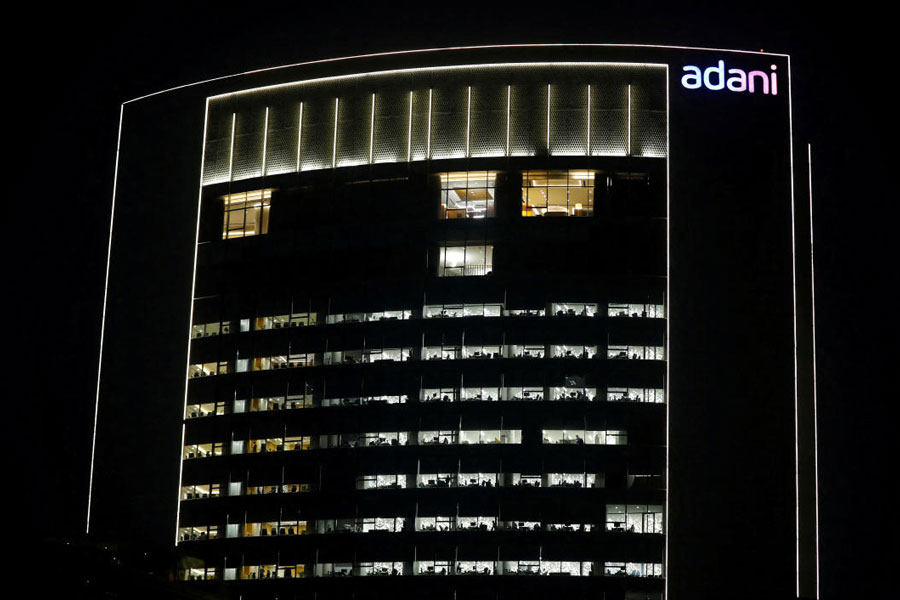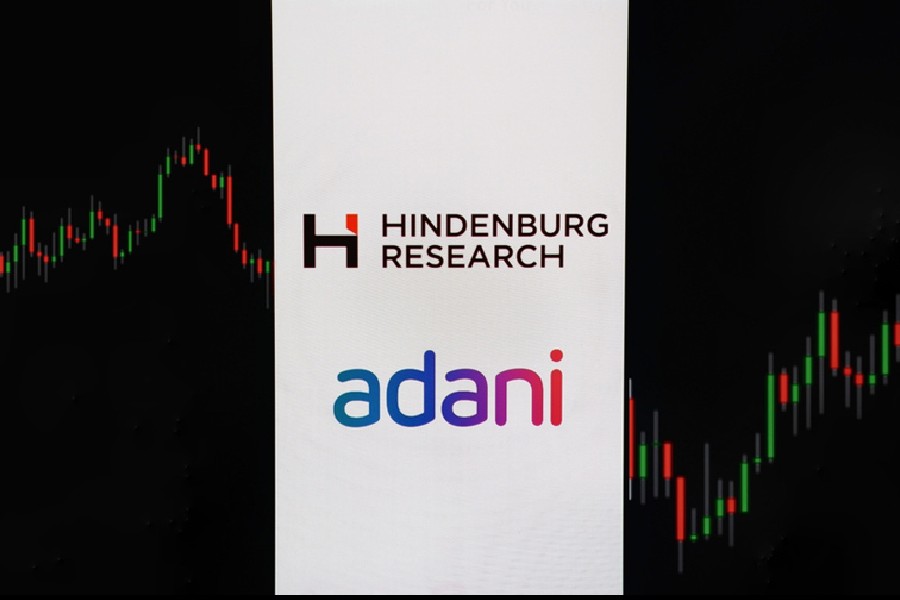Adani group shares fell steeply on Thursday after the publication of a report which alleged that the Adani family had bought shares of its top companies via low-profile Mauritius-based funds. If correct, this would mean the group has contravened market regulations.
The Adanis dismissed the report by an international non-profit organisation, saying: These allegations are not only baseless and unsubstantiated but are rehashed from Hindenburg’s allegations. It stated that, “all the Adani Group’s publicly listed entities are in compliance with all applicable laws including the regulation relating to public shareholdings” and “we expressly reject all” of the allegations.
The report by Bermuda’s Organised Crime and Corruption Reporting Project (OCCRP) names two men – Nasser Ali Shaban Ahli and Chang Chung-Ling – as being involved in trading hundreds of millions of dollars’ worth of Adani stock. It said both men have close ties to the Adani family and their names appear as directors and shareholders in affiliated companies. Ahli is based in the UAE and Chang in Taiwan.
Market regulator Sebi rules lay down that companies can only hold up to 75 per cent of their own shares and 25 per cent has to be available to the public. Otherwise, if only small quantities of shares are available on the market, it would be easy to manipulate prices.
Shares of several Adani group companies including flagship Adani Enterprises and Adani Ports fell by between 2 per cent and 4 per cent after details about the OCCRP report were published in The Guardian and the Financial Times today.
'Biggest scam in independent India'
The Congress, meanwhile, said the fresh charges of “clearly brazen violations of Indian securities laws” had shown up what could be “the biggest scam in independent India” and demanded a Joint Parliamentary Committee Probe into the allegations.
If Ahli and Chang are proved to have been working for the Adani Group it would be a clear contravention of Sebi regulations
The Financial Times said Ahli and Chang controlled between 12 per cent and 14.4 per cent of the free float shares in three companies – the flagship Adani Enterprises, Adani Power and Adani Transmission. That means only around 10 per cent of the companies’ shares are available in the open market. Therefore, it would be extremely easy to push up share prices quite sharply.
DRI wrote to Sebi in 2014
Additionally, FT reported that the Department of Revenue Intelligence (DRI), which looks into financial crimes had written to Sebi in January 2014, saying it suspected the Adani group of inflating invoices for their power projects.
The newspaper alleged that Ahli and Chang worked with Vinod Adani to transfer up to $900 million. This money was then invested in a range of stocks. Ahli and Chang placed money in two funds, The Emerging India Focus Fund and the EM Resurgent Fund. In March 2017, the value of the investments by these two funds in Adani group companies was around $430 million. The FT says Ahli and Chang’s investments were “overseen by a Vinod Adani employee, raising questions over whether they were front men used to bypass rules for Indian companies that prevent share price manipulation.”
Chang told The Guardian that he knew nothing about secret purchases of Adani stock supposedly related to an undisclosed offshore operation in Mauritius. The operation was allegedly used to support the share price of the Adani group of companies from 2013 to 2018, the OCCRP documents suggest, The Guardian reports.
The Hindenberg report
Back in January, the US financial research firm Hindenburg accused the Adani Group of staging “the largest con in corporate history.” The allegations, strongly denied by the Adani group, wiped up to $100 billion of the corporate behemoth’s market value and sent Gautam Adani’s personal wealth plunging.
The latest allegations contained in myriad offshore financial records unearthed by the OCCRP suggest that associates of the Adani family may have spent years acquiring stock under the radar in the Adani Group’s own companies during its heady rise to become one of the country’s biggest busines houses.
The Guardian says that SEBI was warned as far back as 2014 of stock market activity using Adani offshore funds.
Letter of January 2014
A letter dated January 2014, Najib Shah, the then head of the Directorate of Revenue Intelligence, wrote to Upendra Kumar Sinha, the then head of SEBI. Sinha is now the chairman of Adani-owned news organisation NDTV.
“There are indications that [Adani-linked] money may have found its way to stock markets in India as investment and disinvestment in the Adani Group,” Shah said in the letter.
The Adani Group said that the latest set of allegations are “being done wilfully to defame, disparage, erode value of and cause loss to the Adani Group and its stakeholders.”












